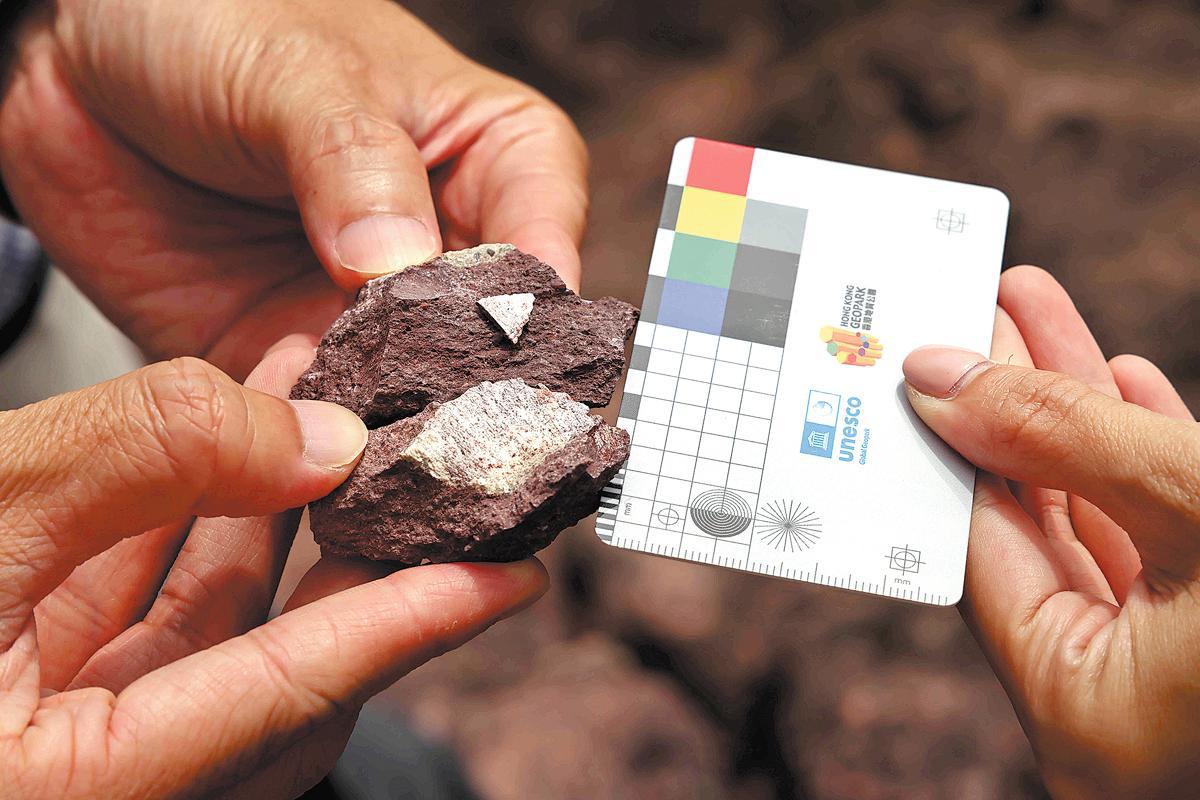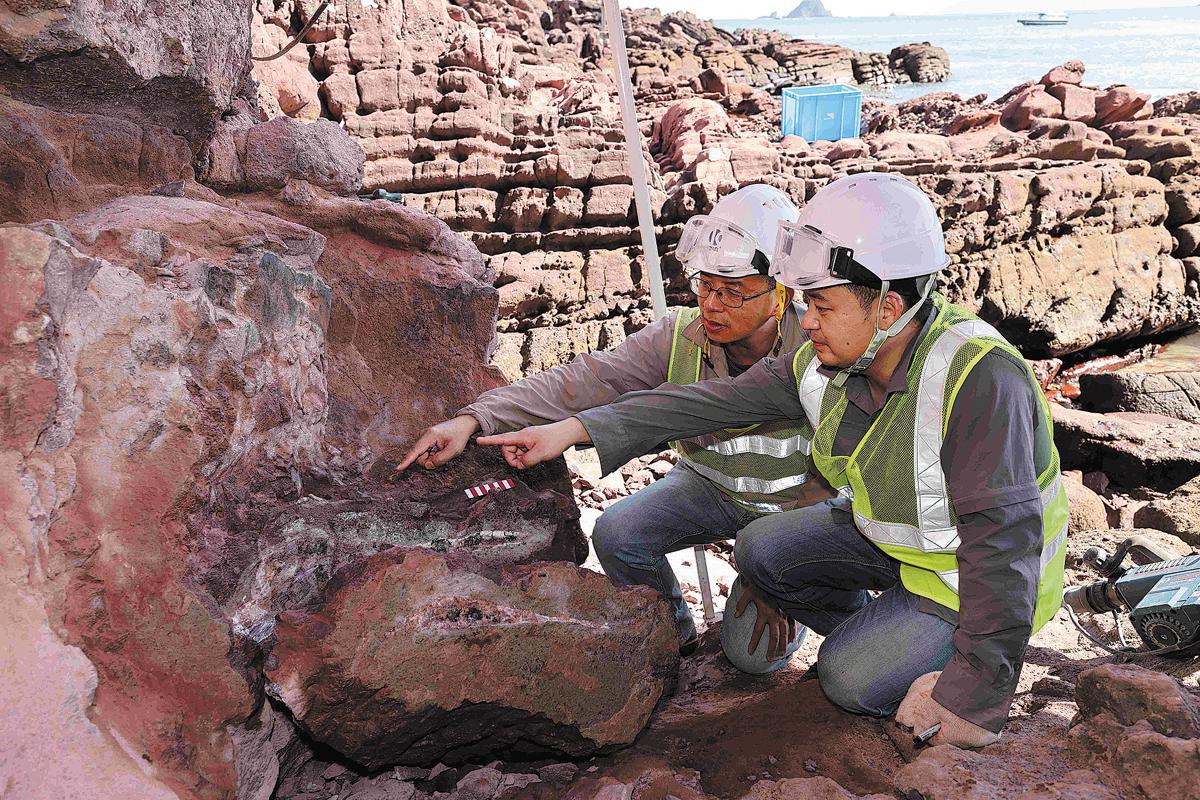Fascination with dinosaur fossils roars to life in Hong Kong
Landmark find of prehistoric remains sparks interest of public, hopes of academia


Bone structure
Hong Kong is a concrete jungle, but a group of dedicated people tirelessly search for dinosaur remains.
Michael Pittman, assistant professor at the School of Life Sciences at the Chinese University of Hong Kong, is one of the pioneers of dinosaur research in the city.
Raised in the city, and of mixed Chinese and English heritage, Pittman said China has a prominent role in global dinosaur studies, and Hong Kong makes a notable contribution. However, he believes many residents may be unaware of the city's world-class achievements in dinosaur research.
In October, Pittman's team, along with other scholars, finalized an academic article titled "Theropod trackways as indirect evidence of pre-avian aerial behavior," which featured on the Proceedings of the National Academy of Sciences of the United States of America publication.
Prior to that, research by Pittman and his team had appeared in prestigious international journals — such as Current Biology, and Nature Communications — multiple times over the years.

Pittman believes Hong Kong has significant advantages in dinosaur research. The field spans various disciplines, and Hong Kong, as an education hub with several world-class universities, offers ample academic resources and talent to meet research needs.
In addition, the HKSAR government offers strong support to achieve high education standards, which not only stresses its focus on research, but also reflects the traditional Chinese belief in the importance of education.
Hong Kong's proximity to the Chinese mainland is another advantage for dinosaur research in the city. Pittman said this factor influenced his decision to return to Hong Kong to pursue his career after studying abroad.
He vividly recalls his first scientific sojourn as a doctoral student to the mainland around 2013.
The sheer magnitude of dinosaur fossils scattered across the Gobi Desert left him awestruck. After arriving at the expedition site, he quickly uncovered dinosaur tracks. Just a few days later, he made a groundbreaking discovery — a new species of carnivorous dinosaur. "I was so thrilled at that moment. I just cheered and shouted on the desert sands like a complete madman," he said.























